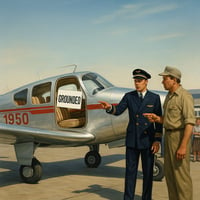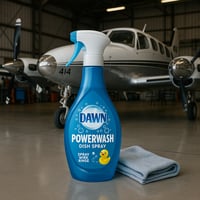Grounded in Silence: How a Convicted Fraudster Slipped Back Into Aviation Part One of an Ongoing...
Bags, Bonuses, and Bureaucracy: Inside the Multi-Billion Dollar Baggage Industry
Bags, Bonuses, and Bureaucracy: Inside the Multi-Billion Dollar Baggage Industry
Introduction:
There was a time when the price of an airline ticket covered the full journey—seat, service, and suitcase. Today, that model is dead. Passengers are now subject to a menu of surcharges that often turn a cheap fare into an expensive ordeal. At the center of this shift is a booming, largely unregulated revenue stream: baggage fees.
As airlines chase every dollar, what was once a convenience fee has turned into an industry pillar. And with recent reports confirming that gate agents at some carriers receive commissions for charging passengers, the lines between policy enforcement and profit motives are increasingly blurred.
The result is a confusing and often adversarial environment for travelers, with inconsistent rules, unpredictable fees, and limited recourse. One recent incident involving comedian Jason Vest illustrates just how far the industry has strayed from fairness and transparency. But a contrasting experience I had with Korean Air shows that discretion and customer service can still exist—when allowed.
The Economics of Airline Baggage Fees
In 2023 alone, U.S. airlines raked in more than $6.7 billion from baggage fees, according to data from the U.S. Bureau of Transportation Statistics. On a global scale, baggage fee revenues topped $33 billion, with the majority of that driven by what airlines call “ancillary revenue”—a category that now includes everything from seat selection to carry-on bags.
Low-cost carriers (LCCs) like Frontier, Spirit, and Allegiant have built their entire pricing model around this structure. Base fares are deliberately kept low to appear competitive, but virtually every part of the travel experience—including carry-ons, seat assignments, and customer service—comes with an additional cost.
Legacy carriers such as American Airlines, United, and Delta were initially slower to adopt this model, but have since followed suit with tiered fare structures. “Basic Economy” fares now come with similar restrictions, including no seat selection and strict baggage limitations. The distinction between a full-service carrier and a budget airline is rapidly disappearing.
Commission-Driven Enforcement at the Gate
In a December 2024 exposé by Business Insider, internal documents revealed that Frontier Airlines pays its gate agents a $10 commission for every oversized carry-on bag they charge for within 60 minutes of departure. Spirit Airlines, another LCC, is reported to have similar incentive structures in place.
The implication is alarming: employees responsible for enforcing baggage size policies are also personally profiting from those enforcement decisions. This creates a powerful incentive to err on the side of denial—rejecting borderline bags, interpreting rules aggressively, and pressing for payment on the spot.
At a time when passengers are stressed, time-constrained, and often with no alternatives, they are being told: pay now, or don’t fly.
Airlines defend this structure by arguing that agents need motivation to enforce policies consistently. But when financial gain is tied directly to penalty decisions, the line between objective enforcement and predatory behavior disappears.
Case Study: Jason Vest’s Encounter With Frontier
In early 2025, comedian and filmmaker Jason Vest became an unwilling symbol of airline overreach. During a return trip from Detroit, MI to Austin, TX, with a layover in Denver, Vest attempted to board his flight with a camera tripod bag—the same item he had flown with just days earlier without issue.
At the gate in Denver, Vest was stopped by a Frontier agent—identified only as “Yvette”—who informed him that the tripod now qualified as an “oversized item” and would incur a $90 charge. The decision contradicted previous flights, where the bag had been accepted without question.
Vest, who was prepared to comply, asked for a moment to transfer funds from one account to another in order to complete the payment. According to his statement, the agent responded, “You have 30 seconds or you’re not boarding.”
Unable to complete the transaction in time, Vest was forced to abandon the tripod, a critical piece of equipment for his professional work.
Vest then spent hours attempting to resolve the issue with Frontier’s customer service—through emails, calls, and social media. He received no reimbursement, no response, and no apology.
As of this publication, Frontier Airlines has not responded to media inquiries from either Vest or this author regarding the incident or its gate agent incentive policies.
For a firsthand account, you can watch Jason Vest’s video detailing the incident here: Jason Vest’s Frontier Airlines Experience
A Different Experience: Korean Air Shows Discretion Is Possible
While Jason Vest’s experience reflects the growing trend of monetized enforcement, not all airlines have abandoned discretion in favor of profit.
In early 2025, while returning from a trip to China, I encountered a similar situation with Korean Air. At check-in, I was informed that one of my checked bags was overweight and would require an additional fee.
Rather than rushing to impose the charge, I calmly questioned the agent about the weight discrepancy and the applicable policy. After reviewing the situation, the gate supervisor was called over. He exercised discretion, acknowledged the minor nature of the overage, and waived the fee entirely.
The entire exchange was professional, respectful, and rooted in basic customer service principles—something that seems increasingly rare in American air travel. The contrast was stark: Korean Air agents were empowered to use judgment. Frontier agents, by contrast, appear incentivized to do the opposite.
The Regulatory Gap: What the Law Does—and Doesn’t—Say
Under current U.S. Department of Transportation (DOT) regulations, airlines are required to disclose all baggage fees at the time of booking. If a checked bag is significantly delayed or lost, passengers are entitled to a refund of the baggage fee.
However, there are no regulations explicitly prohibiting or requiring disclosure of employee commissions tied to gate-assessed fees. Nor is there a uniform standard for determining oversized luggage at the gate. Inconsistency across flights, cities, and carriers is the norm.
The Airline Passengers’ Bill of Rights, while a step forward in some areas, does not address the abuse of discretionary enforcement or the financial incentives that distort it.
By contrast, European Union regulations prohibit airlines from charging for reasonable hand luggage, and legal challenges have forced budget airlines to comply. In the U.S., such protections are virtually nonexistent.
Low-Cost vs. Legacy: The Blurring Lines
|
Feature |
Low-Cost Carriers (Frontier, Spirit) |
Legacy Carriers (American, Delta, United) |
|
Free Carry-On Bag |
No |
Yes (except Basic Economy) |
|
Free Checked Bag |
No |
No (except premium/international fares) |
|
Gate Agent Commissions |
Yes |
No public disclosure |
|
Policy Consistency |
Low |
Moderate |
|
Discretion Allowed |
Rare |
Variable |
Even Southwest Airlines, long known for its customer-friendly “bags fly free” policy, is reportedly evaluating new baggage fee models. If they follow through, it will mark the final collapse of customer-first baggage policy in U.S. commercial aviation.
What Needs to Change
The current system is broken. Passengers are being charged arbitrarily and aggressively by front-line staff who financially benefit from those charges. Consumers are at the mercy of airline employees who are rewarded for conflict, not resolution.
It’s time for change:
- Transparency about agent commissions and enforcement quotas
- Standardized baggage size tools and policies at all airports
- DOT enforcement of discretionary fee abuse
- A right to appeal gate-assessed charges with possible reimbursement
- Empowerment of supervisors to use discretion, not eliminate it
Final Thoughts
My experience with Korean Air proves that discretion and professionalism are still possible in the airline industry. Jason Vest’s story proves how far many U.S. carriers have drifted from those values.
Baggage fees are here to stay. But how they are implemented, who profits from them, and whether the traveler is treated fairly—those are policy choices. And they need to be revisited.
Until federal regulators address the abuse of gate-side discretion and financial incentives, passengers will continue to be treated not as customers, but as opportunities for revenue extraction.
Nick Sanderson is a commercial pilot, Army veteran, and founder of WestSand Aviation and Hangar9. He writes about aviation policy, regulatory reform, and the future of American air travel.
Contact: nick@hangar9online.com



